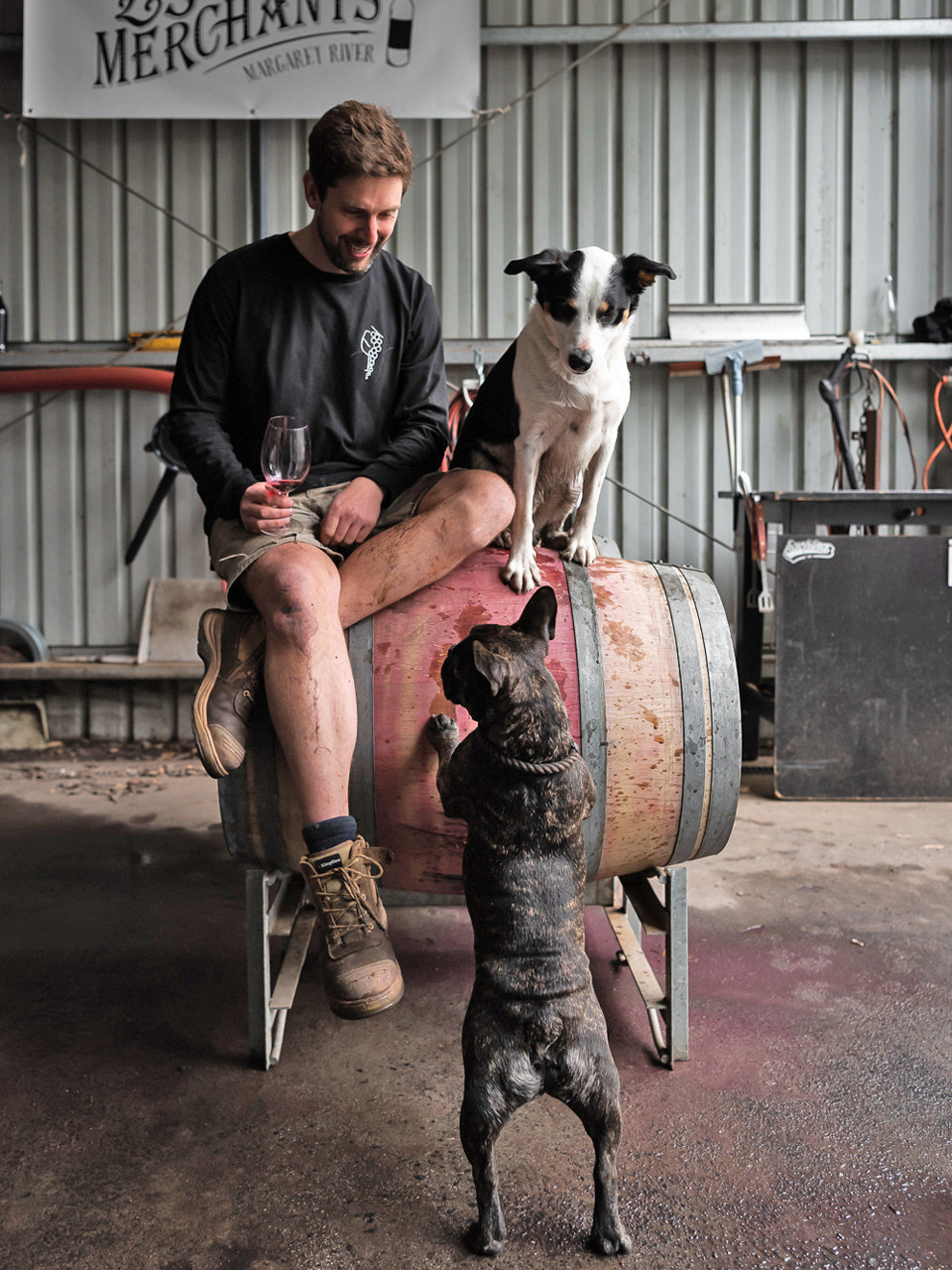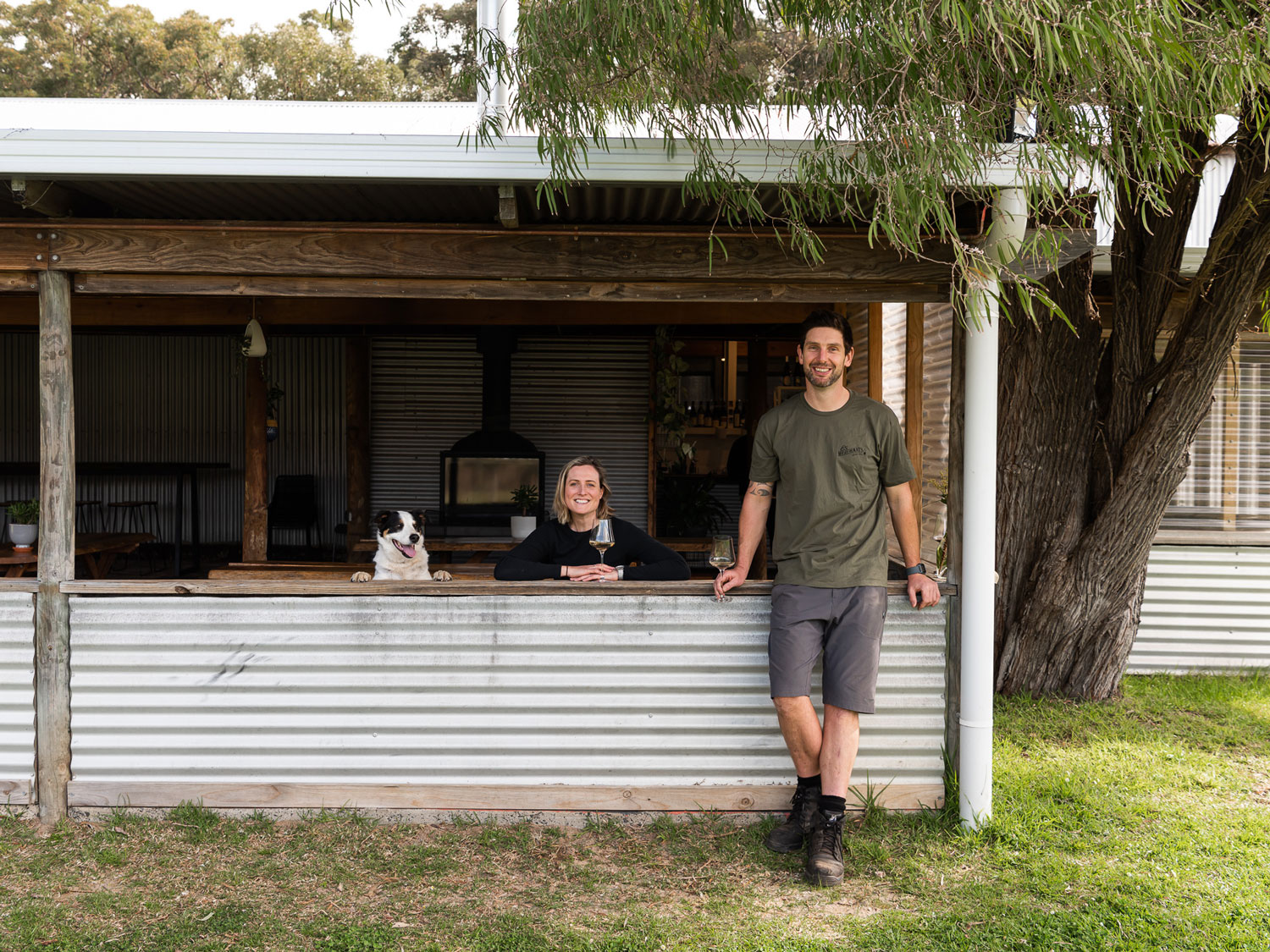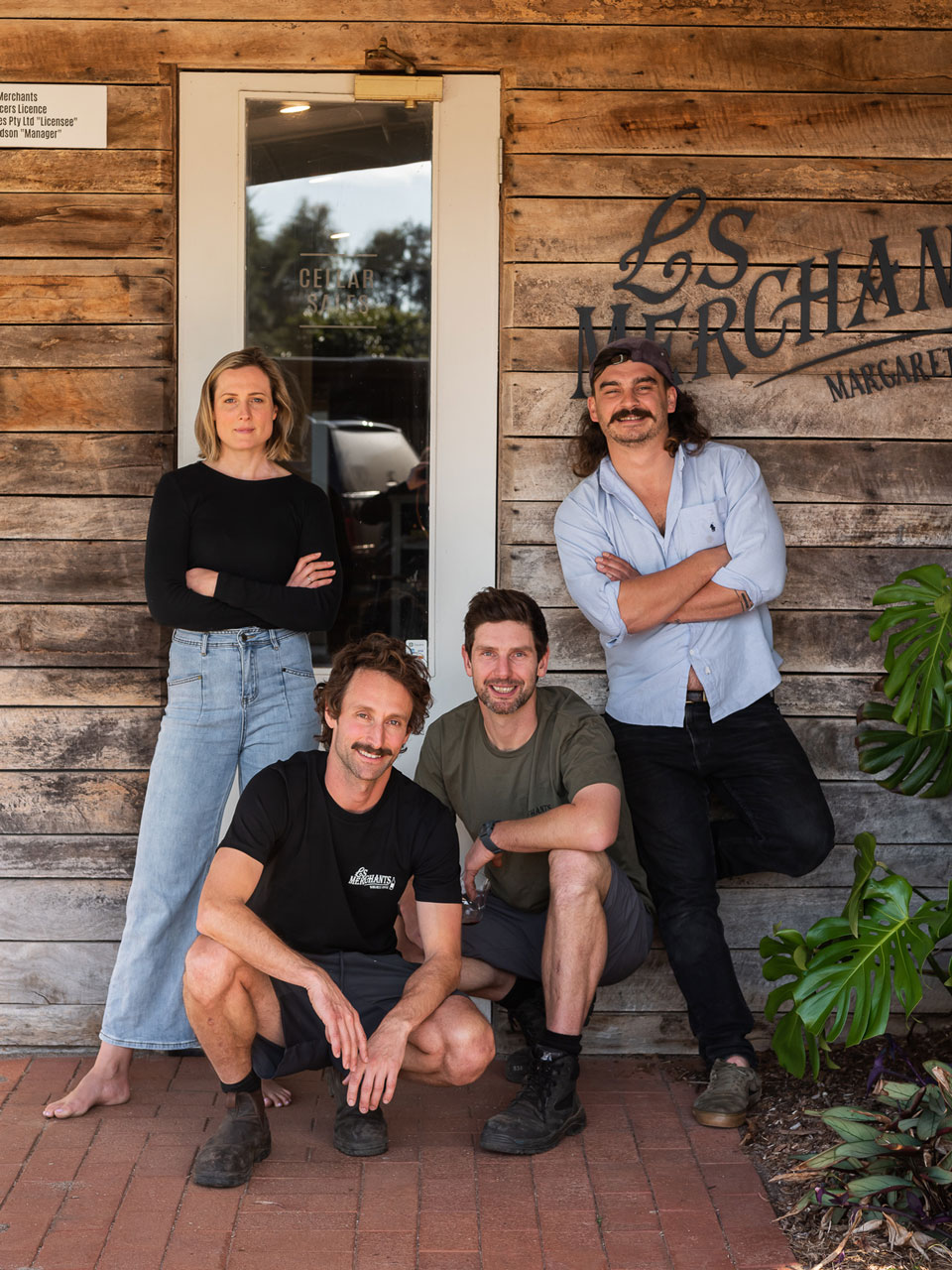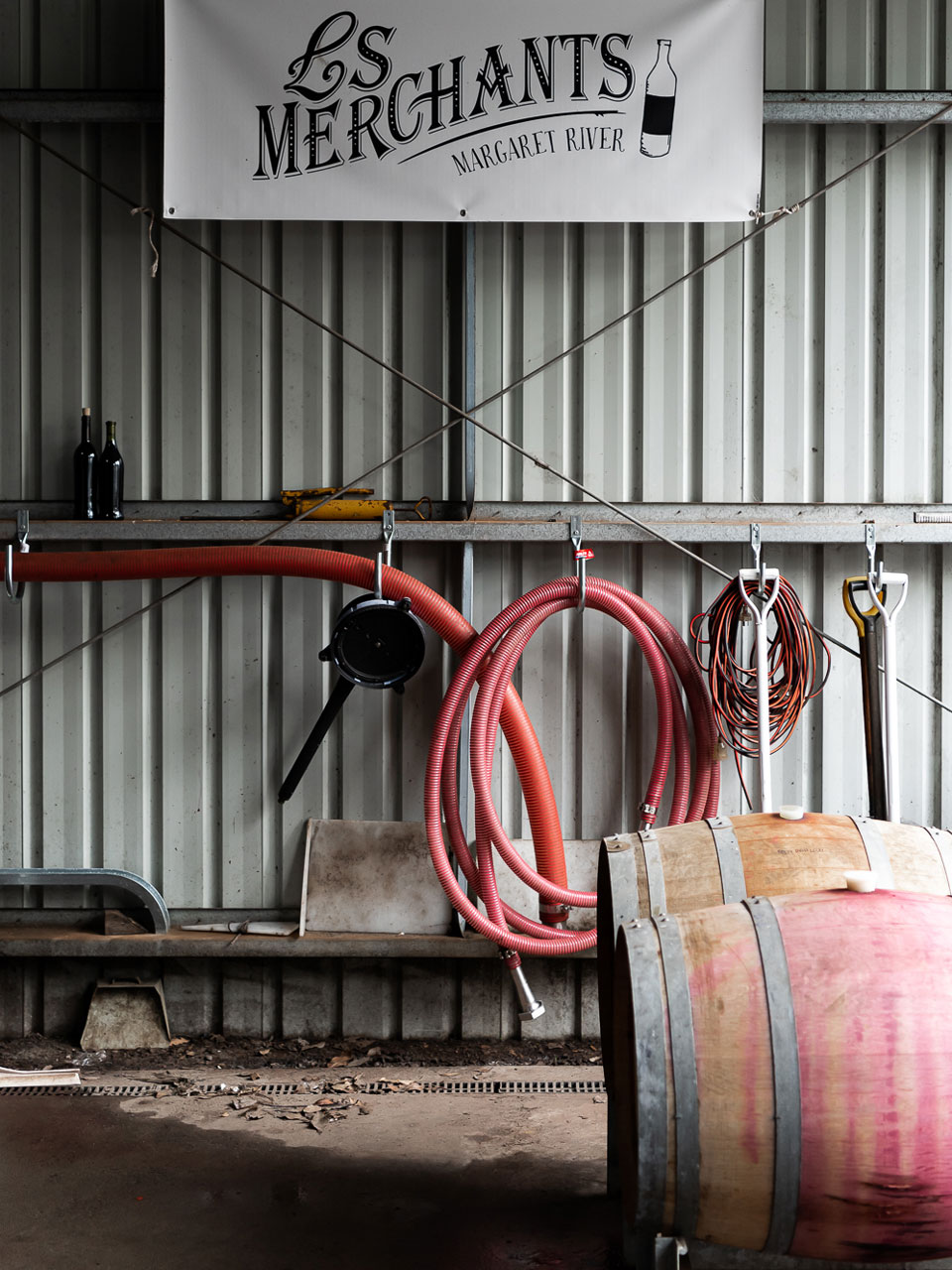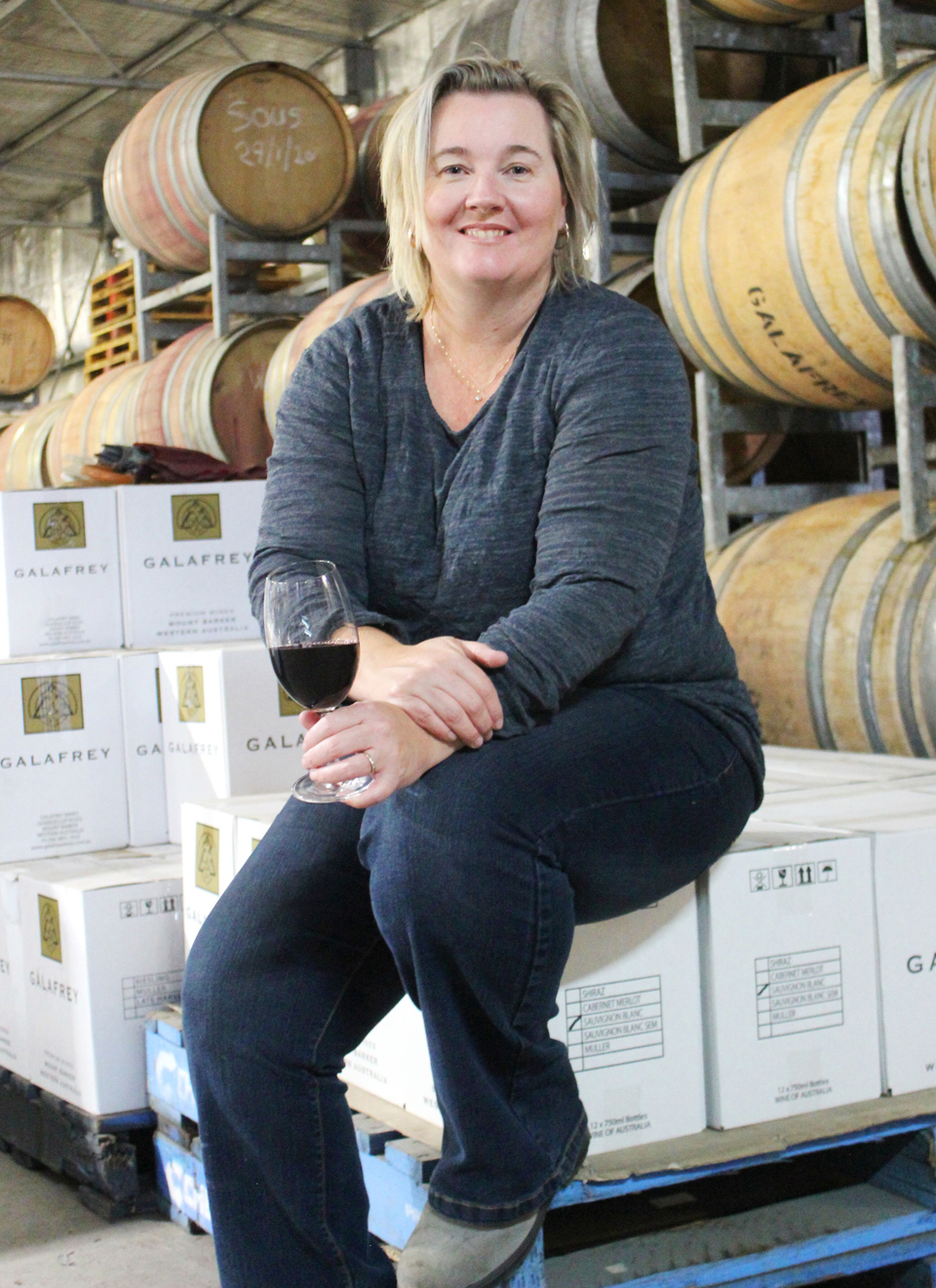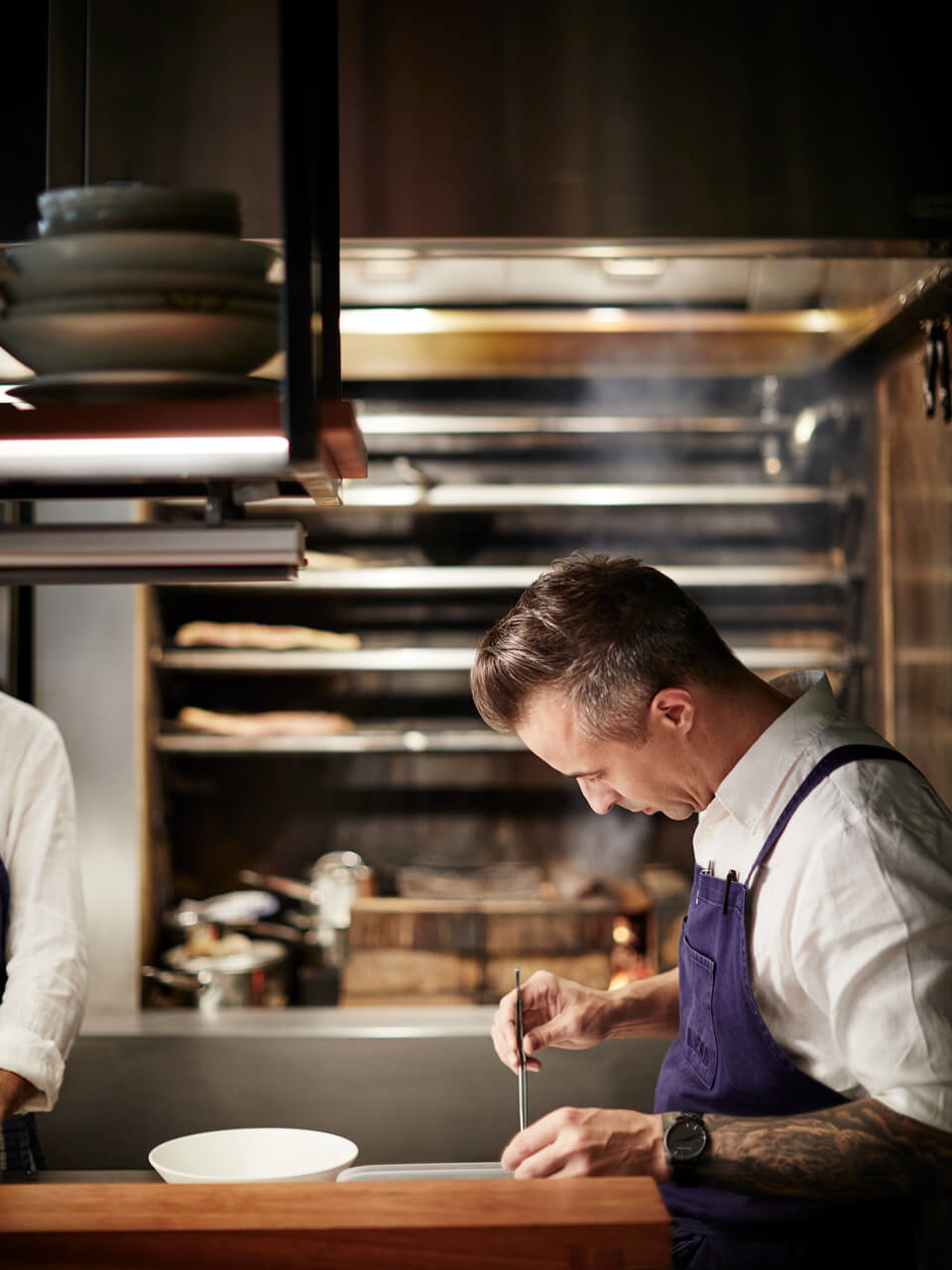LS Merchants was started by Dylan Arvidson as more of a hobby than genuine side project, mainly to feed his creativity and give his mates something different to drink. Today, Arvidson is full throttle with LS Merchants, making around 20 wines across a range of styles from more-or-less classic varietal wines to skinsy whites and pét-nats, and all made with light-handed winemaking and a spirit fuelled by unconventional thinking.
“We have had huge growth in our business, going from producing 50-odd tonnes in 2019/20 to 150 in 2022,” says Arvidson. “We have employed three fulltime staff on top of ourselves, along with four casuals, and we have taken a second lease on a vineyard and cellar door site. The cellar door opened in December 2021, and this year is the first year that 30-40 per cent of our fruit will come from vineyards we are now running ourselves.”
Kiwi by birth, a Geelong-ite by upbringing, Arvidson was lured across the Nullarbor for a winemaking job in 2009. Deciding that the lack of surfing opportunities in Orange, the other offer on the table, was too much of a downside, he took on an assistant winemaking role under Mark Messenger at Juniper Estate, in Margaret River. Six years there saw the gentle evolution of his own project, which started as a bit of fun making wine for friends, then cohered into LS Merchants and a volume of work that required fulltime attention.
Arvidson tumbled into a winemaking degree fresh from high school, more as a way of avoiding a desk job than pursuing a youthful passion for wine. That degree was started at Deakin, and it wasn’t finished until six years later while at Juniper Estate. In short time, he has completed vintages in Geelong, Tasmania, New Zealand, Canada, Bordeaux and Tuscany, as well as travelling extensively with wine in the crosshairs: Spain, Portugal, the USA.
Messenger gave the young Arvidson a shot at Juniper Estate after a conversation that didn’t cover a lot of professional territory. “He gave me a job after we chatted on the phone once, less about my experience and more about Geelong’s 2007 and 2009 premierships,” Arvidson says. Messenger become somewhat of a mentor, encouraging experimentation with his own wines, as well as helping him eventually secure the Head Winemaking position at Cape Grace Wines, in Cowaramup. That was in 2015, the same year that LS Merchants was officially born. He was only 26.
The LS brand was originally Les Sauvages, but that name was already taken, and a cease-and-desist letter saw that name pared back to the initials, with the derivation retrofitted to mean Liquid Surprise. Arvidson is somewhat happier with the conclusion, and not just because the message is a better fit. “I no longer get called Les Savage or Les Sausages!” he says.
“While working at Juniper I had some exposure to alternate varieties as well as exceptional sub-regional examples of the ‘classic’ Margaret River varieties, chardonnay, cabernet, petit verdot et al. I wanted to capture the essence of these varieties and sub-regions or sites and explore the flavors that they would produce with very minimal interference,” Arvidson reflects.
From humble beginnings – with Arvidson having left Cape Grace in 2020 – LS Merchants now makes a dizzying catalogue of wines from a panoply of varieties and sites, with each make ranging from the modest to the micro. Working out of their leased winery on Metricup Road in Wilyabrup, LS uses fruit from the 6-hectare Treeton vineyard that they now lease, with the remainder coming from a catalogue of growers across Western Australia.
“The label was born out of experiment, boredom and a want for more,” says Arvidson. “I knew there was more to the region and the state. It was never launched as a business; we don’t to this day have a business plan. We wanted to find interesting, invested growers with vines they loved and make expressions of the fruit, the grower and the climate/terroir. Above all the wines had to be delicious and fun.”
While Arvidson notes that label has grown to become a proper business, the main aim is still to make delicious wine, and always with a spirit of adventure in the making. “We always experiment,” he says. “We make 15–25 wines each year, with some batches being tiny experiments, while others are larger scale, commercial-reaching batches. We have invested in five 1,800-litre foudres from Slavonia. Aromatic whites will be fermented in these, while we are in the process of acquiring some terracotta pots for sangiovese and nebbiolo ferments.”
“We like to find like-minded growers, growers with the same ethos as us, no unnecessary inputs and lots of love, growers that are passionate about what they grow/produce. We couldn’t do it without them and their support. We name all growers on our labels and website, transparency is the only way,” Arvidson says. “As it becomes financially sustainable, we’ll work with our growers to keep increasing the quality of the fruit and look at planting new blocks of fruit on some vineyard sites we have been working with around Margaret River and Frankland River.”

